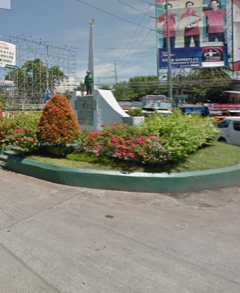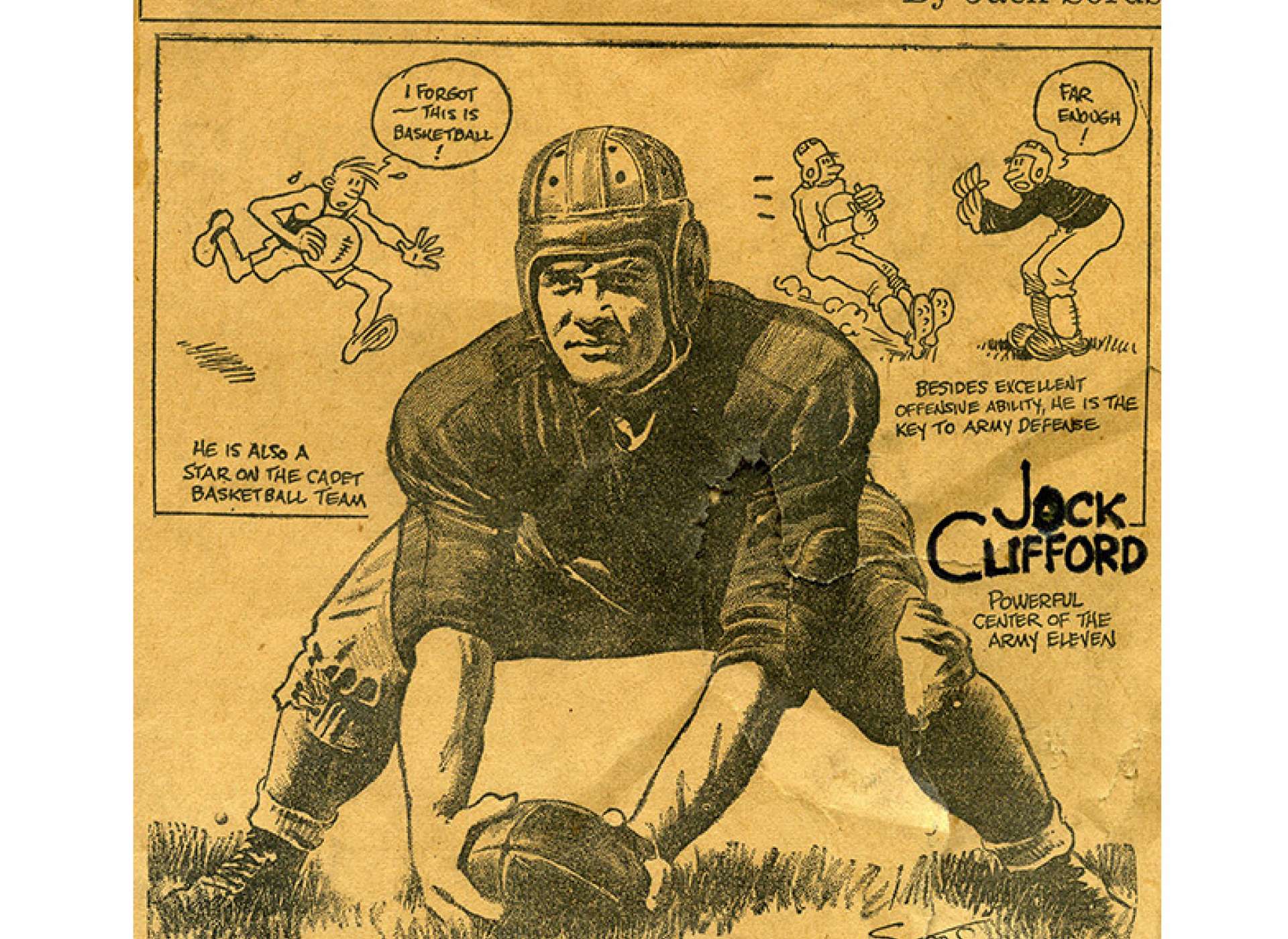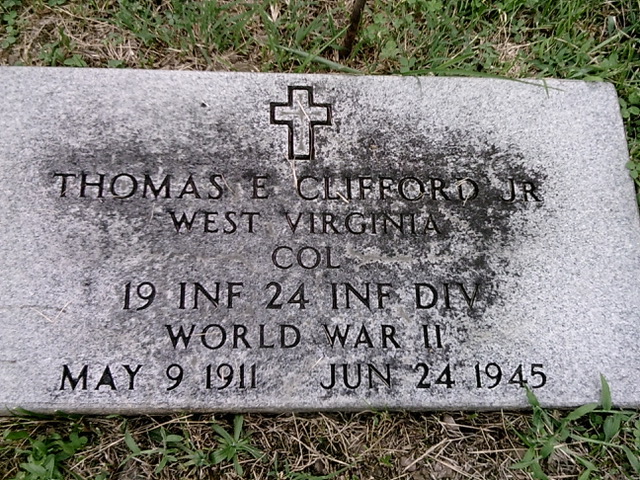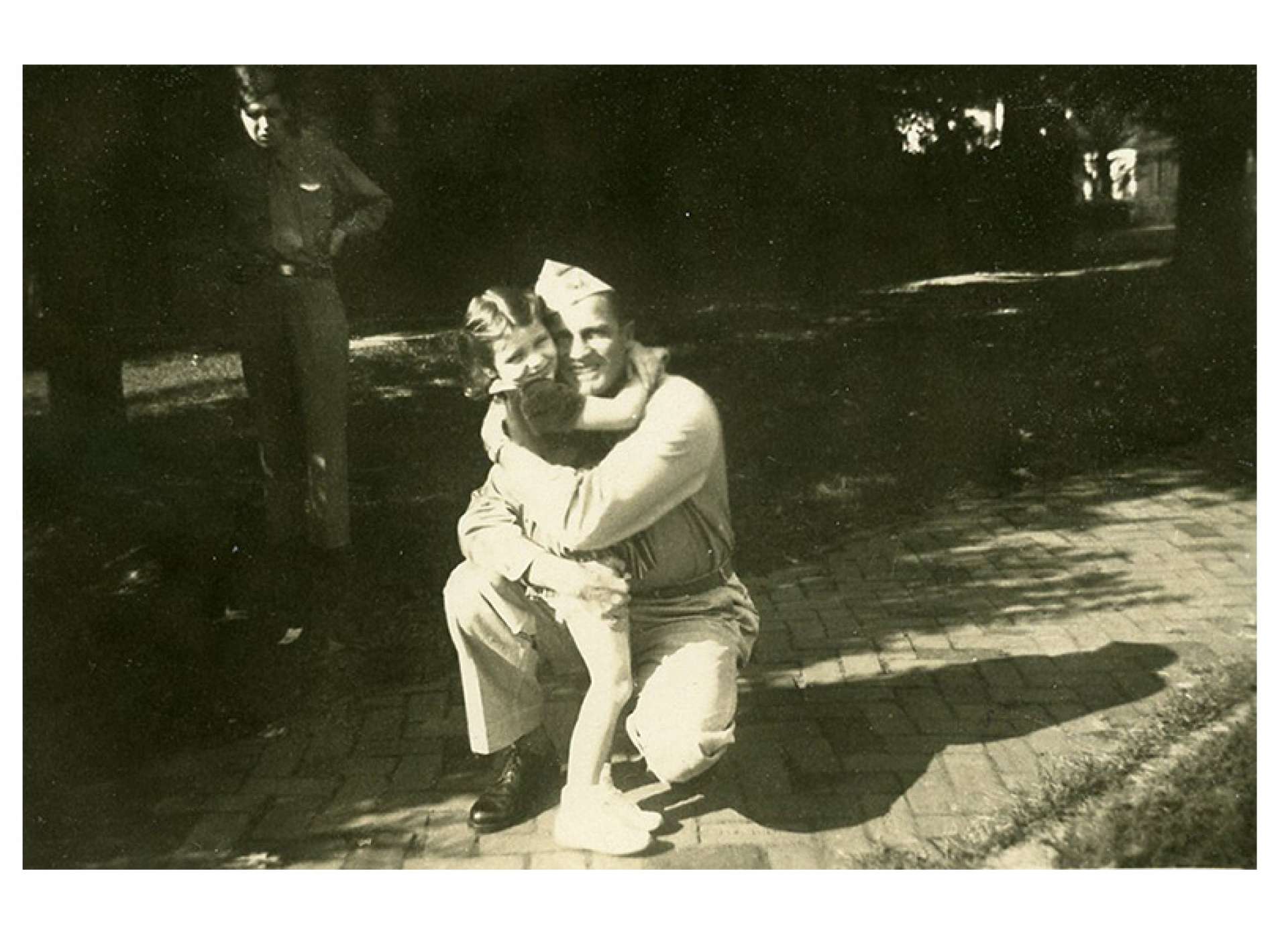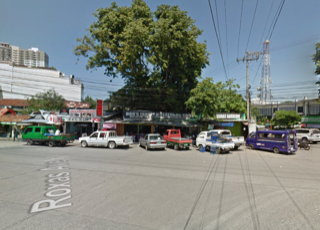Clifford Square -24th Infantry Divsion
Details:
At the west end of Freedom Park, located between two roadways.
A city park named remembering the Commander of the 19th Infantry Regiment, 24th Infantry Division, Colonel Thomas Clifford, who was a much beloved leader, who fell while liberating Davao during the Battle of Mindanao. The city, just days after his death, declared the name of the park or square in gratitude and to remember his sacrifice.
Some background information on Colonel Thomas Clifford from the National WW 2 Museum Website:
Colonel Thomas E. “Jock” Clifford Jr. was widely regarded as a living legend by his peers and the men who served under him. From his early days as a football star at West Point, to the far-flung battlefields of the South Pacific, Jock exuded the qualities of an effective and beloved leader. He led from the front, never asked a man to do anything he wasn’t willing to do himself, and gave every endeavor his all, be it on the football field or the battlefield. When Jock’s life was cut short by a Japanese mortar shell in the closing days of the Philippines campaign, a message of his passing was distributed to the entire 24th division that summed up his character best. It read in part:
“…No finer soldier ever wore the uniform of our army. No braver commander ever led his unit in battle. He was not only a skillful and gifted soldier, but the kind of military man we would all like to be.”
Aubrey S. Neuman, Colonel, Infantry
Born in Covington, Virginia in 1911, Thomas E. Clifford Jr. earned the nickname “Jock” from an elementary school teacher, who likened Clifford’s agility and athletic ability to a popular children’s character of the day, “Jocko the Monkey." After graduating from The Greenbrier Military School in 1931, Jock won Greenbrier’s single appointment to the United States Military Academy at West Point that year. A standout on the gridiron, Jock lettered in football in 1934, 1935, and 1936 as the starting center for the cadet football squad. In the 1935 season, Jock’s most successful, West Point tied with bitter rival Notre Dame, 6- 6, and defeated the US Naval Academy 28-6.
Upon graduation in 1936, Jock married his high school sweetheart, Brownie Peters. In 1939, Brownie and Jock welcomed a daughter, Krispin, and were adjusting to life at Jock’s new duty station, Schofield Barracks, in Hawaii. On December 7, 1941, the Japanese attack on Pearl Harbor plunged the United States into war. With Hawaii now bearing the brunt of the war, Brownie and Krispin evacuated to their home in West Virginia, where they awaited Jock’s return. Jock and the rest of the 24th Infantry Division spent the next several months bolstering the defenses of the northern coast of Oahu before reorganizing and training for deployment to the South Pacific.
After months of preparation and training, the 24th Infantry Division’s first offensive action occurred in New Guinea in early 1944. As commander of the 1st Battalion, 21st Infantry Regiment, Jock was awarded the Silver Star for leading his men in the capture of the Japanese airdrome at Hollandia. As the New Guinea campaign wound down in the summer of 1944, Jock was given his first stateside leave since the war began. While at home with his wife and little girl, Jock was notified that the timetable for the Philippines invasion had been pushed up and that his unit had been selected as one of the assault divisions. Jock left the states immediately for his battalion’s staging area in New Guinea, but by the time he arrived, the convoy had already sailed. Determined to catch up to his men, Jock wrangled passage on a fast navy transport bound for Leyte but his ship was torpedoed mid-voyage. After rescue, Jock made the rest of the trip by air and arrived two days after his battalion had stormed the beach. Almost immediately, Jock was given command of a new unit, 1st Battalion, 34th Infantry Regiment.
During the fight for the Ormoc Corridor in November 1944, Jock‘s battalion was given a flanking mission to cut off the lead Japanese elements from their rear echelon. With only the ammunition and food they could carry on their backs, Jock’s battalion ascended a ridge 900 feet in elevation, behind Japanese lines. As his men dug in on Kilay Ridge, Jock was ordered to hold the ridge at all costs. For three weeks, in nearly torrential rain, his men repulsed daily Japanese onslaughts. As weapons caked with mud refused to function, many of the engagements were hand-to-hand melees. When ammunition ran low and food became nonexistent, Jock’s battalion was resupplied by air. The supply drops were enough for the men to hang on, but much of it fell outside their perimeter and into Japanese hands.
Toward the end of the battle, Jock received a radio message from the relief force, commanding general of the 32nd Infantry Division: “You and your men have not been forgotten. You are the talk of the island, and perhaps the United States. Army beat Notre Dame 56 to 0, the worst defeat on record.” Those present recalled Jock grinning ear to ear at the news of the West Point walloping of Notre Dame. Soon after, Jock’s tattered battalion was finally relieved, as the fresh troops manned the muddy foxholes of Kilay Ridge, they counted nearly 1,000 Japanese bodies scattered among the perimeter. For their actions at Kilay Ridge, the battalion received the presidential unit citation.
During the Mindanao Campaign, Jock, as commander of the 19th Infantry Regiment, led the final drive to liberate Davao City by marching his men 120 miles through harsh terrain in just 10 days. On June 24, 1945, one day before 8th Army commander, Lt. General R. L. Eichelberger officially announced the end of organized enemy resistance on Mindanao, Jock was killed by Japanese mortar fire. The news sent ripples of shock and disbelief throughout the ranks as the men of the division learned that the indestructible Colonel, “Hell-Roaring Jock” Clifford was gone. A few days later, the grateful people of the war-torn city of Davao renamed the town plaza “Clifford Square” in Jock’s honor. Today in Davao City, Clifford Square is part of a complex called Freedom Park, a government-mandated area where people can exercise their constitutional freedom of speech and expression in peaceful gatherings.
Monument Text:
Commemorates:
People:
Units:
19th Infantry Regiment, 24th Infantry Division
24th Infantry Division
8th US Army
Amphibious Group 7
South West Pacific Area (Command)
Task Group 78.2 (Naval & Amphibious)
Wars:
WWII
Battles:
Operation Victor (I-IV)
Pacific Theater
Philippines Campaign (1944–1945)
Southern Philippines Campaign (1945)
Other images :

